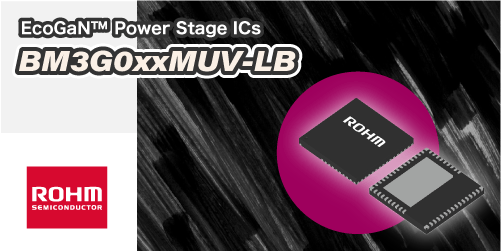*ROHM August 1st, 2024 study

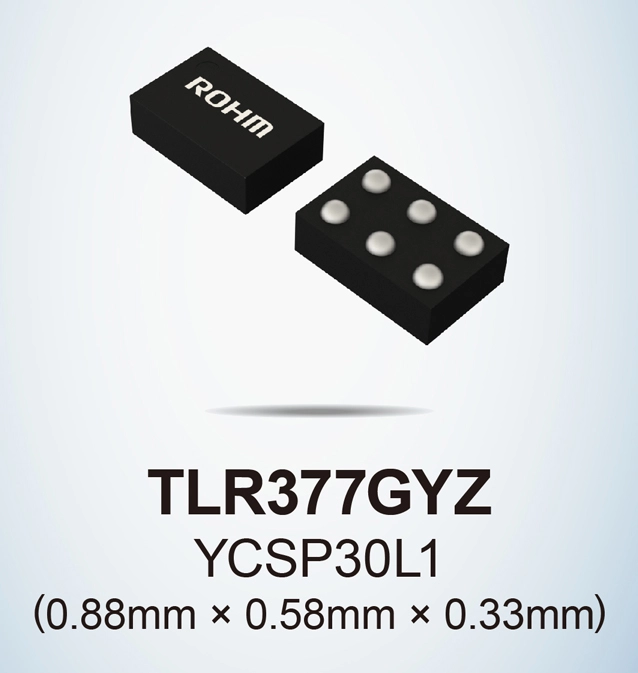
ROHM has developed an ultra-compact 1.8V – 5V, rail-to-rail CMOS operational amplifier (op amp) – the TLR377GYZ. It is optimized for amplifying signals from sensors such as temperature, pressure, flow rate, used in smartphones, small IoT devices, and similar applications.
The size of smartphones and IoT devices continues to decrease – requiring smaller components. To accurately amplify small signals as needed in high precision sensing, op amps must improve low input offset voltage and noise performance while continuing to shrink the form factor.
The TLR377GYZ succeeds in balancing miniaturization with high accuracy (which has been difficult to achieve with conventional op amps) by further evolving proprietary circuit design, process, and packaging technologies cultivated over many years.
Op amps’ input offset voltage and noise generation degrade amplification accuracy and can be suppressed by increasing the size of the built-in transistors – but at the expense of miniaturization. In response, ROHM developed proprietary circuits which achieve a maximum offset voltage as low as 1mV without increasing the size of the transistors. In addition, proprietary process technology greatly reduce flicker noise, while ultra-low noise is achieved with an input equivalent noise voltage density of 12nV/√Hz by optimizing the resistive components at the element level. Furthermore, the new product adopts a WLCSP (Wafer Level Chip Scale Package) with a ball pitch of just 0.3mm utilizing original packaging technology. This reduces size by approximately 69% compared to conventional products and 46% over existing compact products.
The IC-mounted conversion board that can replace SSOP6 packages is also offered to support replacement considerations and initial evaluation. Both the new product and conversion board are available for purchase through online distributors. In addition, the high accuracy SPICE model – called ROHM Real Model – is available on ROHM’s website for verification simulations.
Going forward, in addition to greater miniaturization and accuracy, ROHM will continue to improve op amp performance by reducing power consumption further utilizing proprietary ultra-low current consumption technology.
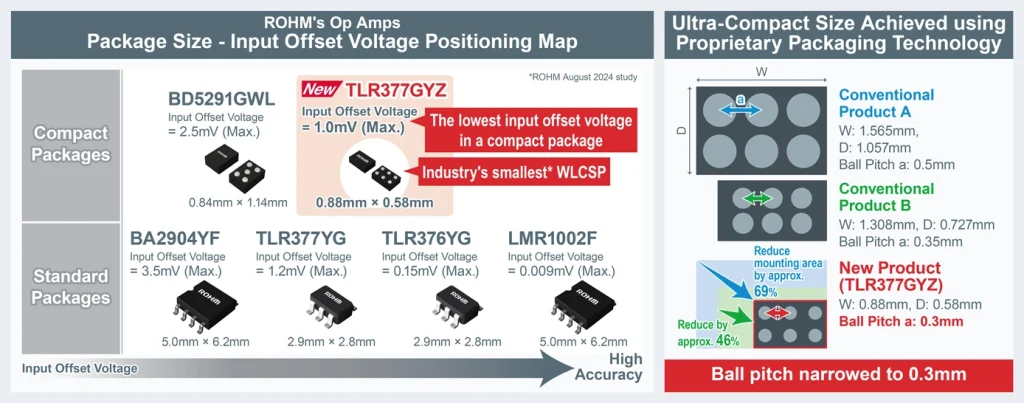
Video
Key Product Feature
A shut down function required by mobile devices is built in, reducing power consumption during standby mode.
| Part No. | No. of Circuits | Supply Voltage [V] |
Input Offset Voltage Max. [mV] (Ta=25℃) |
Input Offset Voltage Temperature Drift Max. [μV/℃] |
Circuit Current Typ. [μA] (Ta=25℃) |
(Shut down Function) Shut down Circuit Current Max. [μA] (Ta=25℃) |
Equivalent Input Noise Voltage Density Typ. [nV/√Hz] |
Operating Temperature [℃] |
Package [mm] |
||
|---|---|---|---|---|---|---|---|---|---|---|---|
| (f=10Hz) | (f=1kHz) | ||||||||||
| NEW |
Buy Datasheet |
1 | 1.8 to 5.5 |
1.0 | 6 | 585 | 1.5 | 50 | 12 | -20 to +85 |
 YCSP30L1 (0.88×0.58, t=0.33) |
Application Examples
・Smartphones, compact IoT devices equipped with measurement sensor amps, etc.
Reference Design / Application Evaluation Kit
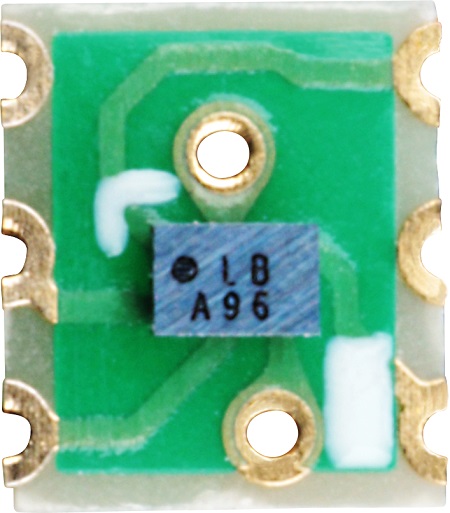
Evaluation Board – TLR377GYZ-EVK-001
TLR377GYZ-EVK-001 is a conversion board that connects TLR377GYZ, which is a CSP package, to a SSOP6 pattern.
High Accuracy Simulation Models: ROHM Real Models
ROHM Real Models are new high accuracy SPICE models that utilizes original model-based technology to faithfully reproduce the electrical and temperature characteristics of the actual IC, resulting in a perfect match between the IC and simulation values. This ensures reliable verification, contributing to more efficient application development – for example by preventing rework after prototyping. ROHM Real Models are now available on ROHM’s website.
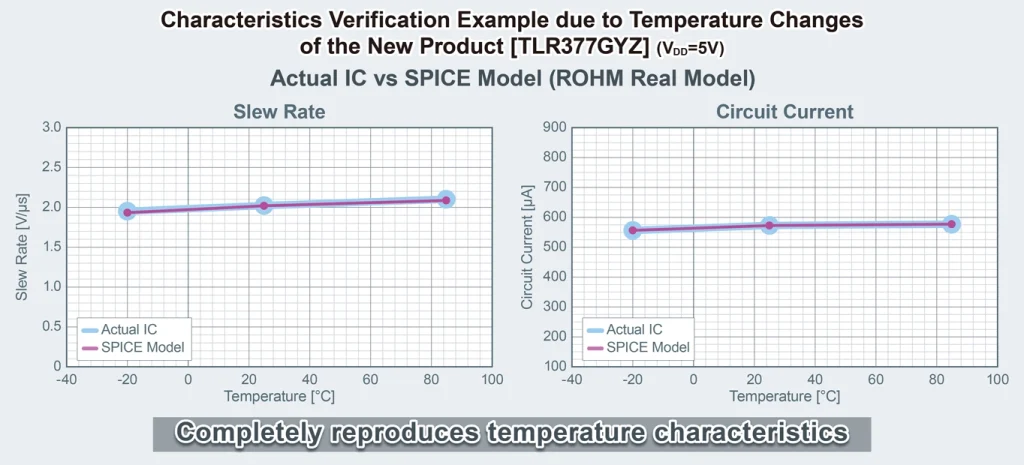
Terminology
- Input Offset Voltage
- The error voltage that occurs between the input terminals of an op amp.
- Flicker Noise
- Noise inherent to electronic components such as semiconductors. Power is inversely proportional to frequency, so the lower the frequency the greater the power. Also called 1/f noise or pink noise. Other types of noise include thermal (i.e. Johnson-Nyquist, white) noise.
- Equivalent Input Noise Voltage Density
- The value obtained by short-circuiting the input terminals and referring the noise voltage density appearing at the output to the input terminals, i.e., since amplifiers have gain (amplification factor), dividing the output noise voltage density by the gain allows for a fair evaluation of the amplifier’s intrinsic noise characteristics.
- ROHM Real Model
- A high-accuracy simulation model that succeeds in achieving a perfect match between the actual IC and simulation values utilizing ROHM’s proprietary model-based technology.







